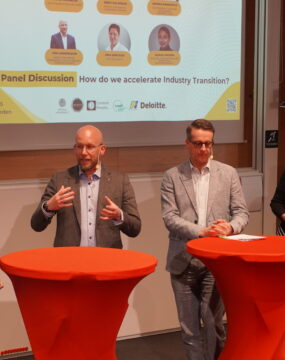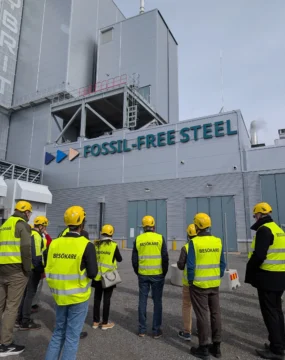News & Analysis
11 July 2025
Vacancy – Policy Fellow
Join the Leadership Group for Industry Transition (LeadIT) as a Policy Fellow, driving international collaboration for a low-carbon future in heavy industry. Closing date for applications 18 August 2025.

4 July 2025
Rs. 9 Crores funding available for Indian decarbonization projects
Written by Jane Birch
The Department of Science & Technology (DST), India, is launching a call for proposals under the India-Sweden Industry Transition Partnership, focusing on the decarbonization of the steel and cement sectors. This call supports pre-pilot technology feasibility studies, encouraging collaboration between Indian and Swedish companies and research institutions.

3 July 2025
AI and data solutions – LeadIT at Almedalen 2025
Written by Jane Birch
LeadIT at Almedalen 2025, as part of the Engaging India event, hosted a panel discussion to explore how AI and data solutions are being used to support industry decarbonization and consider future developments and challenges.

3 July 2025
Leadership for Inclusive Industrial Transition
Written by Arati Davis, Jane Birch
LeadIT's first-ever Global Business Leader Summit brought together senior industry executives, innovators, and institutional partners from across regions and sectors to explore how in a time of geopolitical uncertainty business can drive green industrial transformation.

25 June 2025
Ecometrix – a Swedish AI start up joins LeadIT
Written by Jane Birch
Ecometrix, a Swedish AI start up has joined LeadIT. The company uses AI tools to support the decarbonization of heavy industry, especially within the construction and concrete sectors.

17 June 2025
Industry transition in action: Sweden and India
Written by Jane Birch, Felipe Sanchez
In early May 2025, a delegation from India visited Sweden to continue the work of the LeadIT Industry Transition Partnership (ITP).

